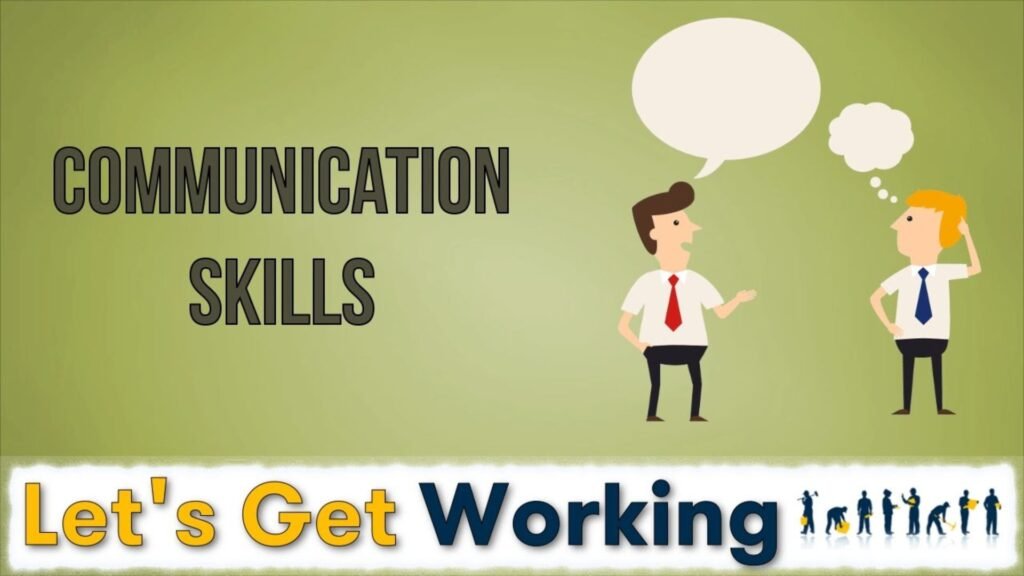Improving business communication skills is vital for success in any professional setting. Good communication helps teams work together, solve problems, and achieve goals more effectively. In this guide, we will explore practical ways to enhance your business communication skills. Follow these tips to become a more effective communicator in the workplace.

1. Practice Active Listening
Why Active Listening Matters
Active listening is the foundation of effective communication. It involves fully concentrating on the speaker, understanding their message, and responding thoughtfully. By actively listening, you show respect and ensure that you accurately understand what others are saying. This leads to clearer communication and fewer misunderstandings.
Tips for Active Listening
To practice active listening, start by giving your full attention to the speaker. Avoid interrupting and wait until they finish speaking before responding. Use non-verbal cues like nodding and maintaining eye contact to show you are engaged. Additionally, summarize or repeat back what you heard to confirm your understanding. This helps clarify any potential miscommunications.
2. Be Clear and Concise
Importance of Clarity in Communication
Clear and concise communication is crucial for avoiding confusion. When you express your ideas simply and directly, others are more likely to understand and act on your message. This is especially important in business, where clear instructions and information can impact decision-making and productivity.
How to Communicate Clearly
To be clear and concise, avoid using jargon or complex language. Break down your message into short, easy-to-understand sentences. Use bullet points or lists to organize information when presenting multiple points. Additionally, get straight to the point and focus on the main message without unnecessary details. This helps keep your communication effective and to the point.
3. Use the Right Communication Channels
Choosing the Best Channel
Different communication channels serve different purposes. Email, phone calls, video meetings, and face-to-face conversations each have their advantages. Choosing the right channel for your message can greatly impact its effectiveness.
When to Use Different Channels
For quick updates or simple requests, email or instant messaging may be appropriate. For detailed discussions or complex topics, opt for a phone call or video meeting. Face-to-face meetings are best for sensitive topics or when you need to build relationships. Selecting the appropriate channel ensures your message is received and understood as intended.
4. Develop Strong Non-Verbal Communication
Role of Non-Verbal Cues
Non-verbal communication, such as body language, facial expressions, and tone of voice, plays a significant role in how your message is received. These cues can reinforce or contradict what you are saying verbally. Effective non-verbal communication helps convey your message more accurately and build rapport with others.
Tips for Improving Non-Verbal Communication
Pay attention to your body language and ensure it matches your verbal message. Maintain good posture, make eye contact, and use gestures to emphasize key points. Be mindful of your tone of voice and facial expressions, as they can influence how your message is perceived. Practice aligning your non-verbal cues with your intended message to enhance overall communication effectiveness.
5. Seek and Provide Constructive Feedback
Importance of Feedback
Feedback is essential for personal and professional growth. It helps identify strengths and areas for improvement in communication. Constructive feedback encourages open dialogue and continuous development, leading to better communication skills over time.
How to Give and Receive Feedback
When providing feedback, focus on specific behaviors or actions rather than personal attributes. Use “I” statements to express how the behavior affects you, and offer practical suggestions for improvement. When receiving feedback, listen openly and ask for clarification if needed. Reflect on the feedback and use it to make positive changes in your communication approach.
6. Enhance Your Emotional Intelligence
Role of Emotional Intelligence in Communication
Emotional intelligence (EQ) is the ability to understand and manage your own emotions and those of others. High EQ improves your communication by helping you navigate social interactions more effectively, handle conflicts, and build stronger relationships. It enhances your ability to communicate empathetically and respond appropriately to various situations.
Ways to Develop Emotional Intelligence
To boost your emotional intelligence, practice self-awareness by reflecting on your emotions and how they affect your communication. Develop empathy by actively listening and understanding others’ perspectives. Work on managing your emotions in challenging situations and build strong interpersonal relationships. These practices enhance your overall communication skills and effectiveness.
7. Invest in Communication Training
Benefits of Communication Training
Communication training provides structured opportunities to develop and refine your skills. It offers practical strategies and techniques to improve various aspects of communication, including speaking, listening, and writing. Training can help you build confidence and apply new skills in real-world situations.
Finding the Right Training
Look for communication training programs or workshops that address your specific needs. Consider courses on public speaking, interpersonal communication, or business writing. Online platforms and professional organizations often offer valuable resources and training opportunities. Investing in training can significantly enhance your communication skills and professional growth.
Conclusion
In summary, improving your business communication skills involves practicing active listening, being clear and concise, using the right communication channels, developing strong non-verbal communication, seeking and providing constructive feedback, enhancing emotional intelligence, and investing in communication training. By implementing these strategies, you can enhance your effectiveness as a communicator and achieve better results in your professional interactions.

